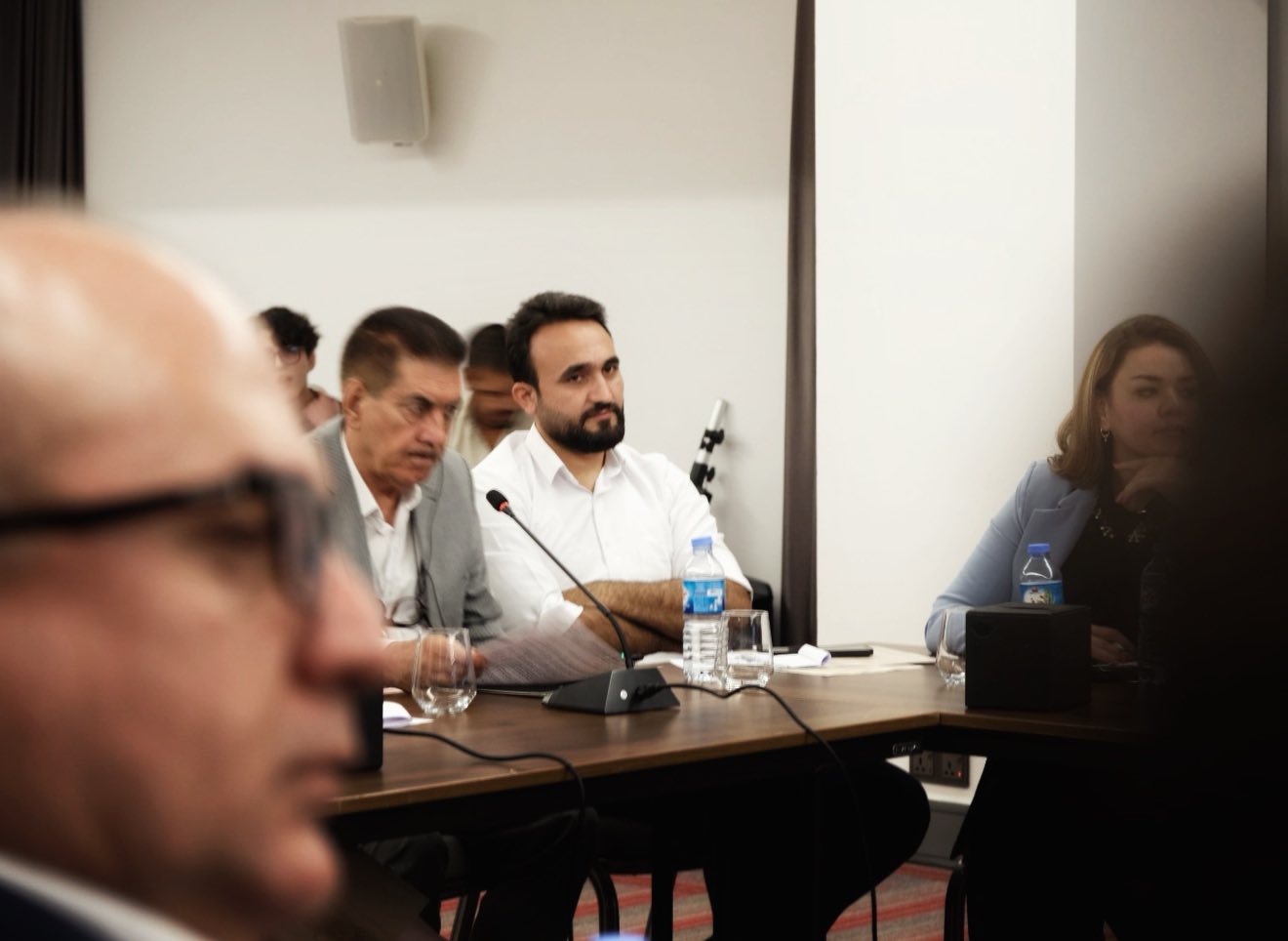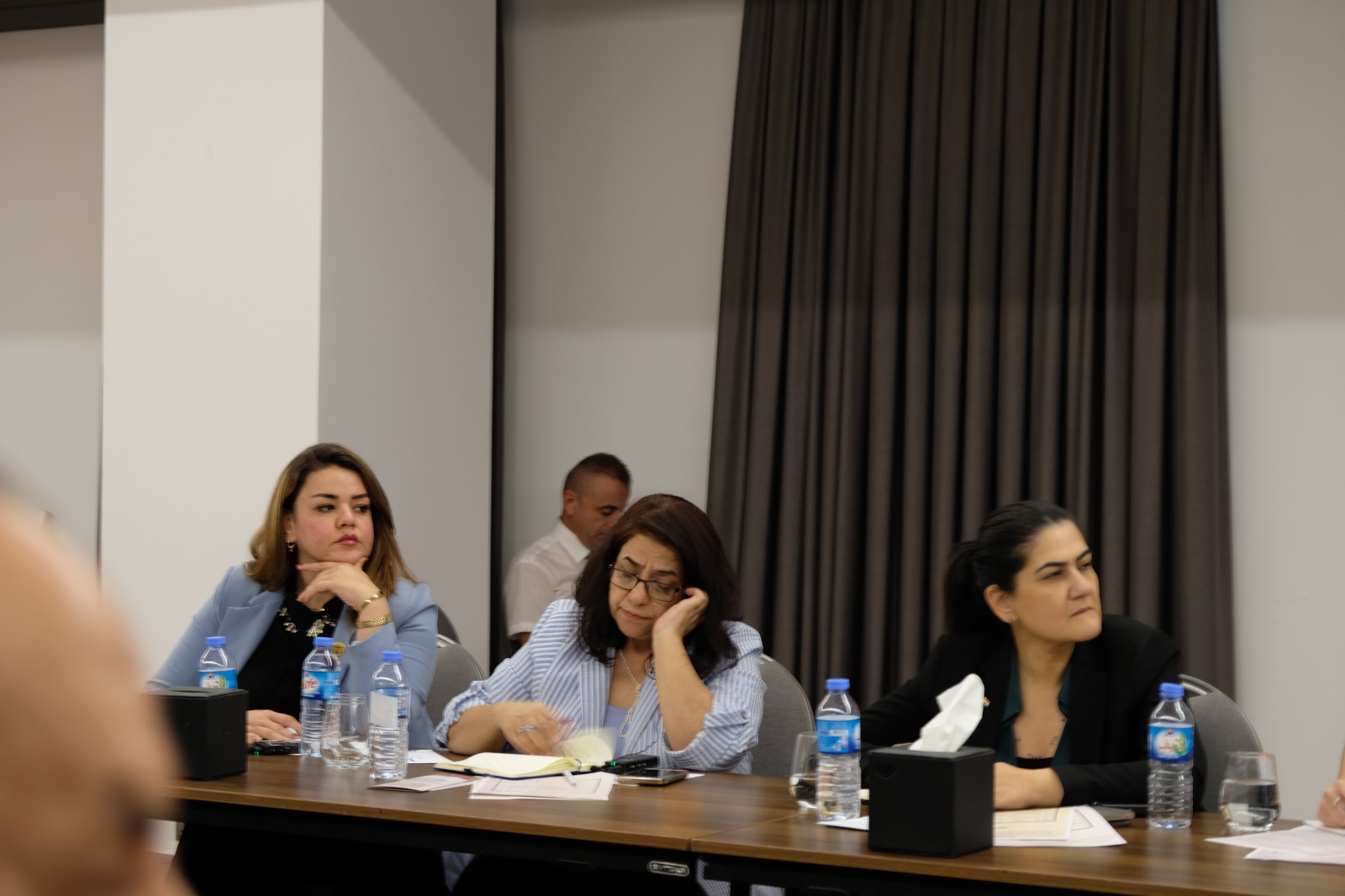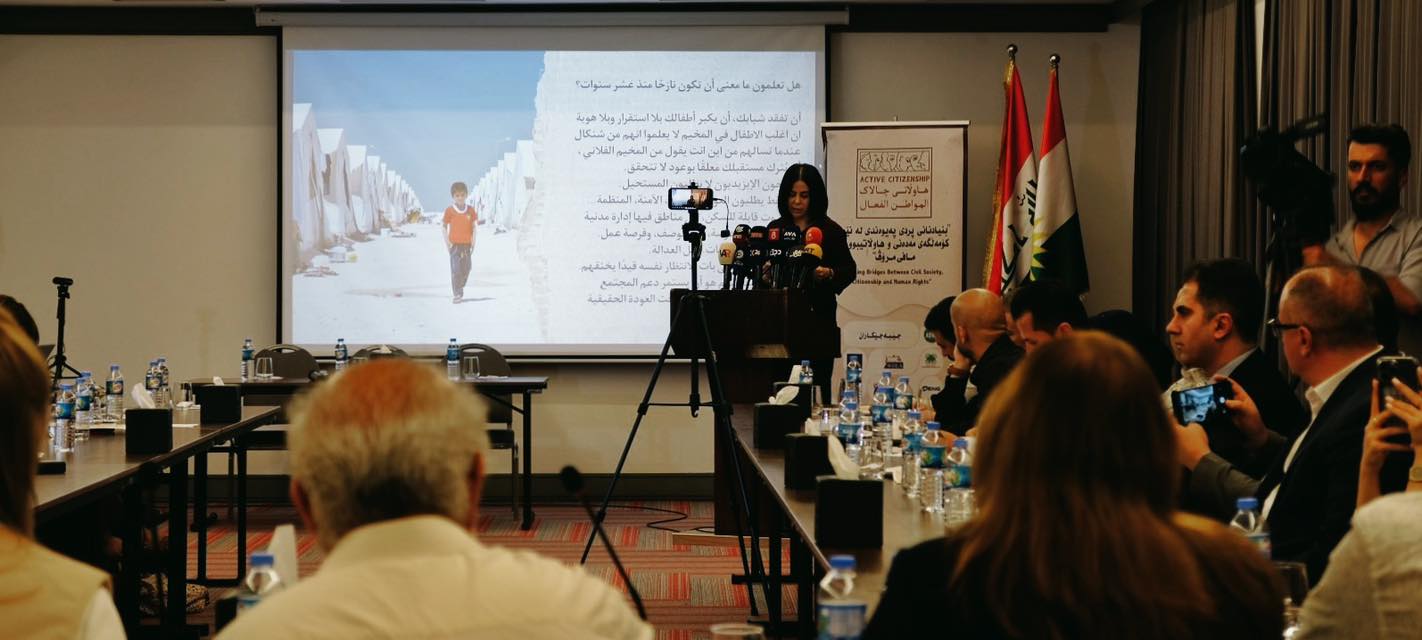There is a prevailing concern and pessimism regarding the current situation of the Ezidis in Iraq, as highlighted during a conference held by Wadi German-Iraqi Non-Governmental Organization NGO and its partners in Erbil on July2nd. Several proposals were discussed to enhance their circumstances.
Wadi, known for its work with the internally displaced people IDPs in Iraq, particularly the Ezidis, engaged in a comprehensive dialogue with various partners, 11 years after the devastating events in Shingal (Sinjar), where the Ezidis faced genocide by the Islamic State of Iraq and the Levant (ISIL).
The conversations follow the widespread neglect of the Ezidis, including the closure of IDP camps by the Iraqi government and the halt of support from the international community and aid organizations, as stated by Chiman Hama Rashid, coordinator of the Wadi in Iraq.
"The current conditions in Shingal and the IDP camps have exposed the severe neglect faced by the Ezidis... Issues like closed schools, health facilities, lack of essential services like electricity and water need immediate attention," Chiman expressed.
"This religious community in Iraq requires long-term solutions to their problems because the current efforts, even those by organizations, are temporary and insufficient," she added.
In August 2014, ISIL seized control of significant parts of northern Iraq and specifically targeted ethnic and religious minorities, particularly Ezidis and Christians, through violent means in an attempt to eradicate communities with differing beliefs.

On August 15, 2014, ISIL carried out a massacre in the Ezidi village of Kojo, resulting in the murder of 2,293 Ezidis as per the Kurdistan Regional Government KRG's Ezidi Hostages Rescue Office.
11 years later, 188,944 Ezidis remain displaced, with 135,616 residing IDP camps in the Duhok northern province, making 27,000 families.
"I am deeply pessimistic about the current state of affairs for the Ezidis and foresee another genocide if concrete actions are not taken to support this religious community," Abdullah Sabir, an advisor to Wadi, shared.
"Being confined to a camp for 11 years is a form of violence and neglect in itself."
The discussion primarily focused on rekindling commitment to the cause of the ethno-religious community, aiming to establish a sustainable strategy for their safe return to their homeland.
"One of the major challenges faced by the Ezidis is the decision to close the camps, which is a poorly executed decision," noted Saud Misto, director general of Ezidi affairs at the KRG Ministry of Endowments and Religious Affairs.
"International agencies and embassies need to address this decision. The plight of the Ezidi community extends beyond the displaced in the 14 camps in Duhok; those outside the camps who have not returned to Shingal are also in dire circumstances. The suffering of the Ezidi community is immense, caught in the crossfire of political and military conflicts," he added.
Both the federal and KRG signed the Shingal Agreement in 2020, outlining a roadmap for a new administration in Shingal, security reorganization, return of the IDPs, and service provision. However, despite repeated calls, the agreement remains unimplemented.
"The implementation of the agreement was crucial, yet it remains unresolved," Misto emphasized. He also highlighted the negative impact of the new US administration's decision to suspend financial aid on the work of organizations and their support to IDP camps.
"The agreement's implementation would ensure security and facilitate the return of all the displaced," former US Ambassador to Iraq Alina Romanowski told KirkukNow last November.
Currently, Shingal district, the historical homeland of the Ezidis, houses at least 10 different security and military forces, creating security instability for the community as they each operate under different commands, with some even opposing each other.

"The significance of this discussion lies in the presence of consulate representatives, allowing us to directly convey our concerns to them," Misto highlighted.
Representatives from the United States, Germany, and the Netherlands, along with officials from the KRG and various local and international organizations, were present at the meeting.
Firmesk Ahmad, a member of the KRG’s High Council for Women's Affairs, raised a crucial question: Is Shingal currently suitable for the return of the displaced?
"Discussing the forced return of the displaced from the camps requires a collective stance; it's a complex issue because Shingal is not yet conducive for habitation and requires reconstruction efforts and enhanced security measures."
According to KirkukNow followps, out of 21 health centers in 16 IDP camps in Duhok province, only seven centers remain operational following the expiration of organization contracts providing IDP assistance.
Hardi Ahmad, deputy director of the KRG’s Office for NGO affiars, emphasized the necessity of a long-term organizational plan for addressing such issues, advocating for collaboration among all organizations to maximize effectiveness.
He proposed the establishment of a coordination platform comprising local and international organizations, the private sector, governments, and country representatives.
"As a first step, it's vital for all of us to exert pressure on the Iraqi government to prevent the forced return of the displaced," Hama Rashid concluded.





